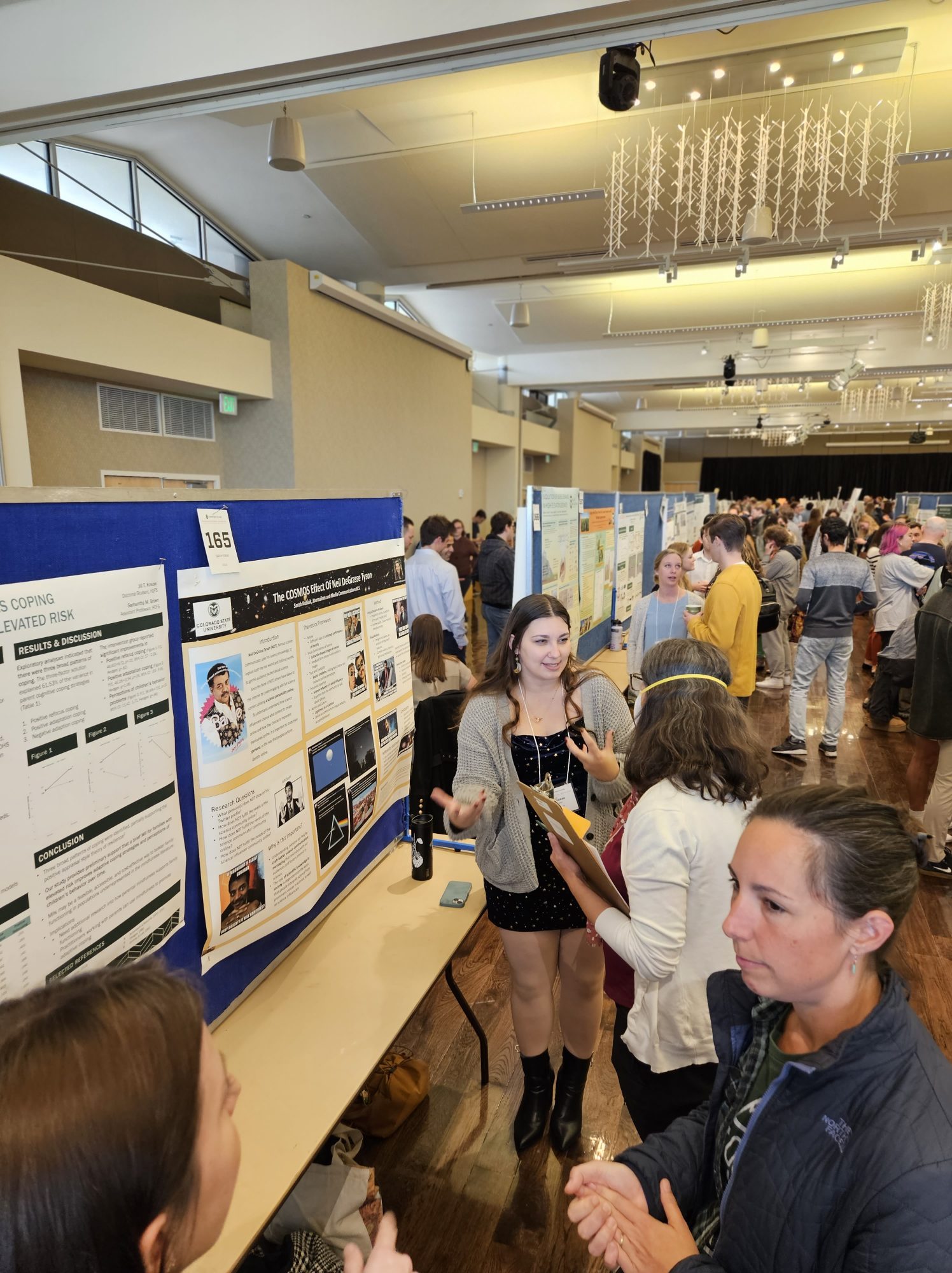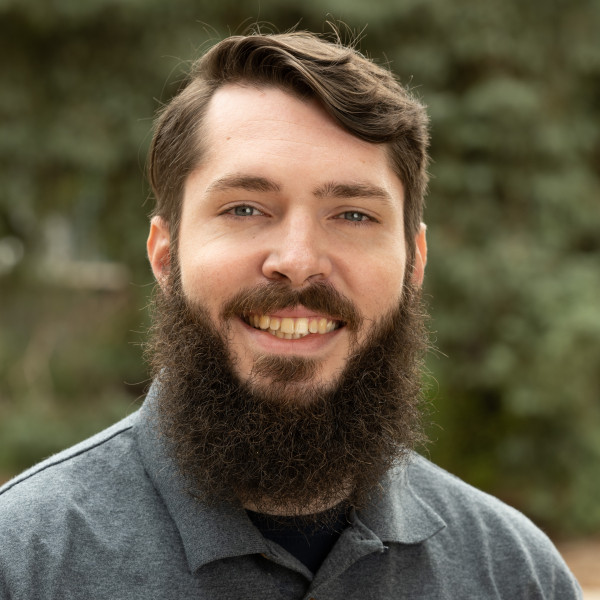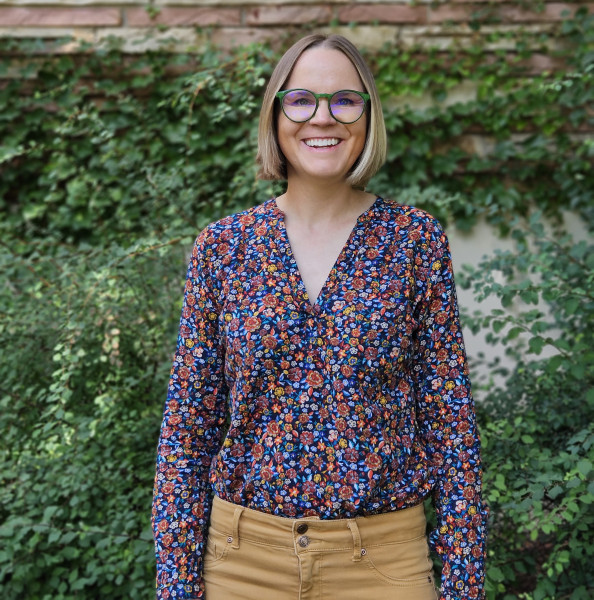Ph.D. in Media Communication
Join our PhD program to conduct transformative research in science communication, digital culture, strategic communication, and media studies. Our program combines intensive faculty mentoring with comprehensive research and teaching training, backed by competitive assistantship funding.
Program Overview
Students that gain admission into our competitive PhD program come from all over the world. We pride ourselves on having a supportive and collaborative approach for PhD students rather than one of intense competition. Our program provides opportunities for teaching, research, funded conference travel, and career development through fostering collaboration with our award-winning faculty. While most begin as graduate teaching assistants, we also provide opportunities for you to excel to the role instructor of record and/or as a graduate research assistant when possible. We provide training and resources for developing your competence as a teacher. While your coursework and dissertation prepare you to develop rigorous, theoretically-grounded research and scholarship with impact. Our small class sizes provide students regular access to faculty in the classroom as mentors and as research supervisors. Graduate students can receive funding for tuition, insurance, and a salary stipend through teaching and research assistantships. Our students may take courses and work with faculty who have expertise in:
- Science Communication: Examines theories, processes, audiences, and methods to enhance the communication of science in areas of health, environment, agriculture, and more. See our Center for Science Communication.
- Strategic Communication: Focuses on strategies and issues in the disciplines of advertising and public relations. Includes audience research, persuasion, crisis communication, and public diplomacy. See our Strategic Communication Center.
- Storytelling, Media, and Democracy: Focuses on journalism practices, storytelling, visual communication, and media behaviors, attitudes, and ownership structure.
- Digital Culture and Identities: Examines the production of personal identities and cultural movements in digital spaces. Research includes performance and performativity theories, immersive technologies, game studies, technocultural discourse, digital narrative analysis, and persona studies.

Course of Study
To join our program, students must hold a master’s degree, ideally one in communication, journalism, or a related field. The program takes a minimum of about 3.5 years to complete; this includes 2.5 years in residence to complete course work and pass the preliminary examination and one year to complete a dissertation. Though, it is common for students to take four years. Recent students’ dissertations have focused on a variety of communication-related issues and problems.
Our program offers a rigorous set of core courses in communication theory and research methods. Students customize their program by selecting 12 credits outside the department or appropriate JTC courses with approval of their doctoral committee. Students may potentially transfer in up to 30 credits from a Masters degree toward program requirements.
Funding
Several types of financial assistance are available to help students achieve their educational goals, including teaching and research assistantships, instructorships, and student loans.
Please visit our Graduate Assistantships section for additional information.
Advising
Ph.D. students are assigned a temporary advisor with similar research interests upon entering the graduate program. By their third semester, students will settle on a (mutually agreed upon) permanent advisor who will serve as a mentor for the remainder of their studies. This allows students to explore different topics and methodologies in their coursework, as well as get to know different faculty and their research and mentorship styles before settling on an advisor.
Each Ph.D. candidate will have a doctoral committee that consists of five members: a permanent advisor, two additional JMC faculty members, and two faculty members from other departments. Committee members usually share research interests with the Ph.D. student and play a critical role in guiding the student’s course of study, preliminary examinations, and dissertation.
Additional information about the advisor and graduate committee can be found in the Ph.D. Student Manual.

Career Outcomes
Students are prepared for careers in academia or industry. A few universities you'll find our recent graduates at as faculty or post doctoral students include:
- University of Oklahoma
- University of North Carolina at Chapel Hill
- South Dakota State University
- University of the Fraser Valley
- Grand Valley State University
- University of Colorado, Colorado Springs
Positions and organizations of a few of our recent graduates in industry include:
- Director of Research, ClearPath Strategies
- Principal UX Researcher, Charter Communications
- Nutrition Business Affairs, Givaudan
How to Apply
Newly admitted students begin the program in the fall semester. Admissions are competitive. For full consideration, all application materials should be submitted by January 16, 2026 using the online application. Please visit our How to Apply page for more details.
Contact
Questions about the program? Please reach out!

